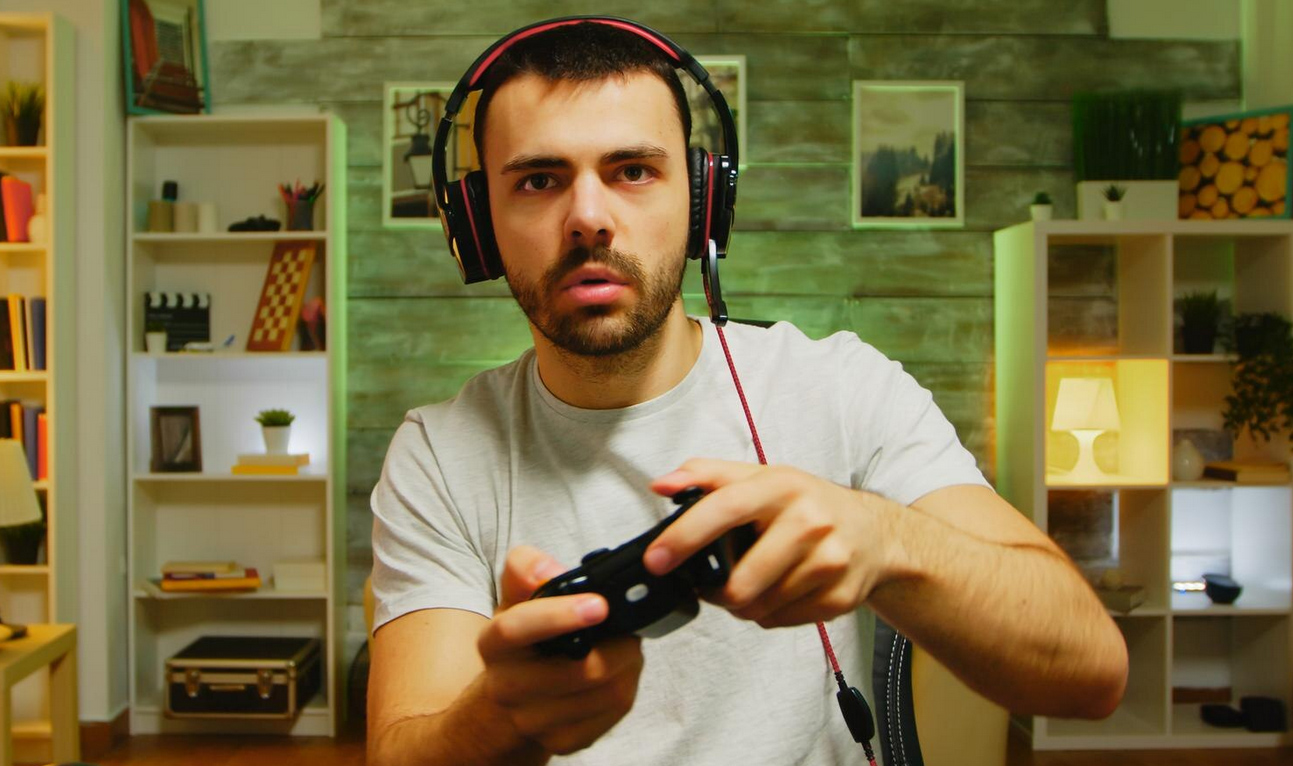
An image which may or may not be related to the article. FREEPIK
From Pixels to Profit: The Rise of Gaming Content Creators
Summary:
Gaming content creators have emerged as modern-day entertainers, turning their passion for video games into lucrative careers. Platforms like YouTube and Twitch have transformed casual gamers into global influencers, with millions of followers and multi-million-dollar sponsorship deals. But behind the glamour lies a grind, with fierce competition, burnout, and the pressure to stay relevant in a rapidly changing industry. Let’s explore the rise of gaming creators and how they’re reshaping both the entertainment and gaming industries.
What started as niche channels on YouTube has exploded into a global industry worth billions. Gamers are no longer just playing for fun—they’re building brands, cultivating loyal communities, and cashing in on ad revenue, sponsorships, and merchandise. But while the journey from pixels to profit sounds like a dream, the reality is far more complex.
The Rise of the Gaming Superstar
The appeal of gaming creators lies in their relatability. Unlike Hollywood stars or professional athletes, these creators feel approachable, like a friend who shares your passion for gaming. Platforms like Twitch and YouTube have broken down traditional barriers, allowing anyone with a console, a decent internet connection, and a unique personality to broadcast themselves to the world.
Take PewDiePie, one of the earliest pioneers of gaming content. From his early “Let’s Play” videos to his reign as one of YouTube’s most subscribed channels, PewDiePie didn’t just play games—he turned them into a shared experience, filled with humor and spontaneity. Or consider Ninja, whose meteoric rise on Twitch made him a household name, securing brand deals with companies like Adidas and appearing on The Tonight Show. These creators aren’t just gamers; they’re global influencers.
And the numbers back it up. In 2023, Twitch boasted over 2.5 million daily viewers, with gaming content accounting for a significant chunk of YouTube’s billions of monthly views. It’s not just a hobby—it’s a career, and for the top creators, it’s one that can rival or surpass traditional jobs in income.
From Gameplay to Entertainment
What sets successful gaming creators apart isn’t just their skill in playing games—it’s their ability to entertain. Whether it’s the hilarious commentary of Jacksepticeye, the cinematic flair of Dr DisRespect, or the chill vibes of Pokimane, these creators know how to keep an audience engaged.
For many viewers, it’s not even about the game itself—it’s about the personality behind the screen. A streamer can make a mediocre game entertaining or turn a well-loved classic into a new experience. It’s a blend of humor, storytelling, and community interaction that keeps fans coming back for more.
Creators have also expanded beyond gaming. They produce vlogs, collaborate on music, and dive into charity streams, showcasing their versatility and connecting with their audience on a deeper level. Gaming might be the foundation, but the empire they’re building extends far beyond it.
The Hidden Grind
But behind the glamour of sponsorship deals and massive followings lies an often-overlooked reality: the grind. Gaming content creation isn’t just about sitting back and playing—it’s a relentless pursuit of relevance in a space that moves at breakneck speed.
Creators are expected to churn out content constantly, staying on top of the latest game releases and trends. Missing a hot new title or failing to stream consistently can mean losing viewers to the next creator in line. Add to that the pressure to engage with fans on social media, collaborate with other creators, and keep up with ever-changing platform algorithms, and it’s clear this isn’t an easy gig.
Burnout is a very real issue in the industry. Creators like LilyPichu and Pokimane have spoken openly about the toll of trying to balance work and personal life in a space that never sleeps. The same platforms that made them stars can feel like cages, where stepping away even briefly risks losing everything they’ve built.
Changing the Gaming Industry
Gaming content creators aren’t just shaping entertainment—they’re influencing the gaming industry itself. Developers now work directly with creators to promote their games, offering early access and exclusive content to streamers and YouTubers.
Some indie titles owe their success entirely to creators who showcased their games to millions. The explosive popularity of Among Us in 2020, for example, was largely driven by streamers and their ability to turn the game into a social spectacle. Developers no longer just market to gamers—they market to the creators who hold their audience’s attention.
Creators have also amplified community voices, highlighting issues like microtransactions, poor game design, or predatory monetization practices. Their influence has turned them into both allies and adversaries for the gaming industry, depending on the message they’re delivering.
The Future of Gaming Creators
As gaming content continues to evolve, one thing is clear: this isn’t a passing trend. The line between gamer and entertainer has blurred, and platforms like Twitch, YouTube, and TikTok show no signs of slowing down.
But the space is becoming more crowded, and creators will need to innovate to stay relevant. Virtual reality, AI-generated content, and immersive streaming experiences are just a few of the areas where gaming creators might explore next.
As I watch a streamer expertly navigate a game I’ve never played, cracking jokes and engaging with their audience, I’m struck by how much the gaming world has changed. It’s not just about pixels on a screen anymore—it’s about connection, creativity, and building something bigger than yourself.
Gaming content creators are redefining what it means to succeed in the digital age. They’re not just playing—they’re shaping culture, breaking barriers, and proving that passion, combined with a little bit of luck and a lot of hard work, can turn pixels into profit.
 muppazine
muppazine